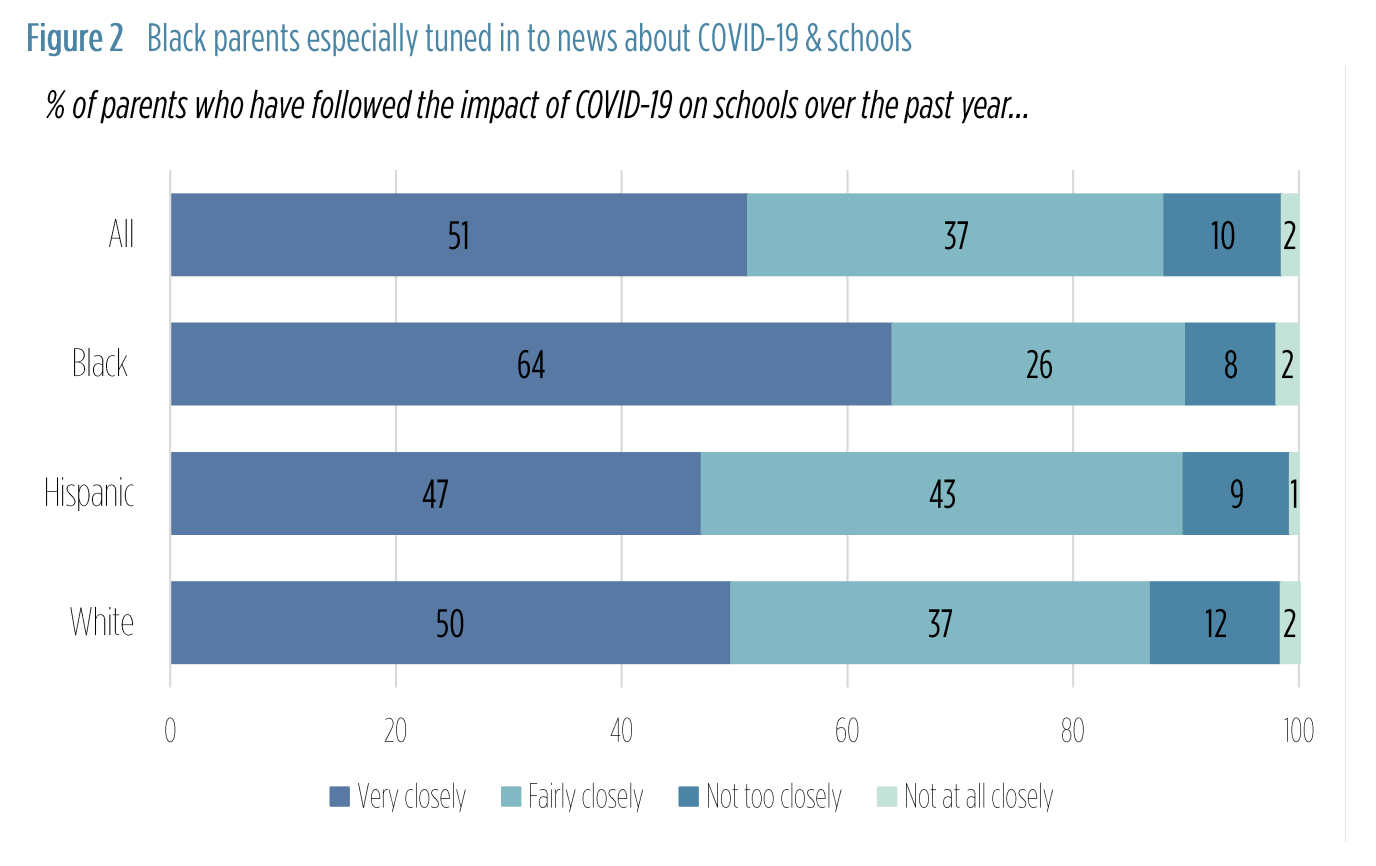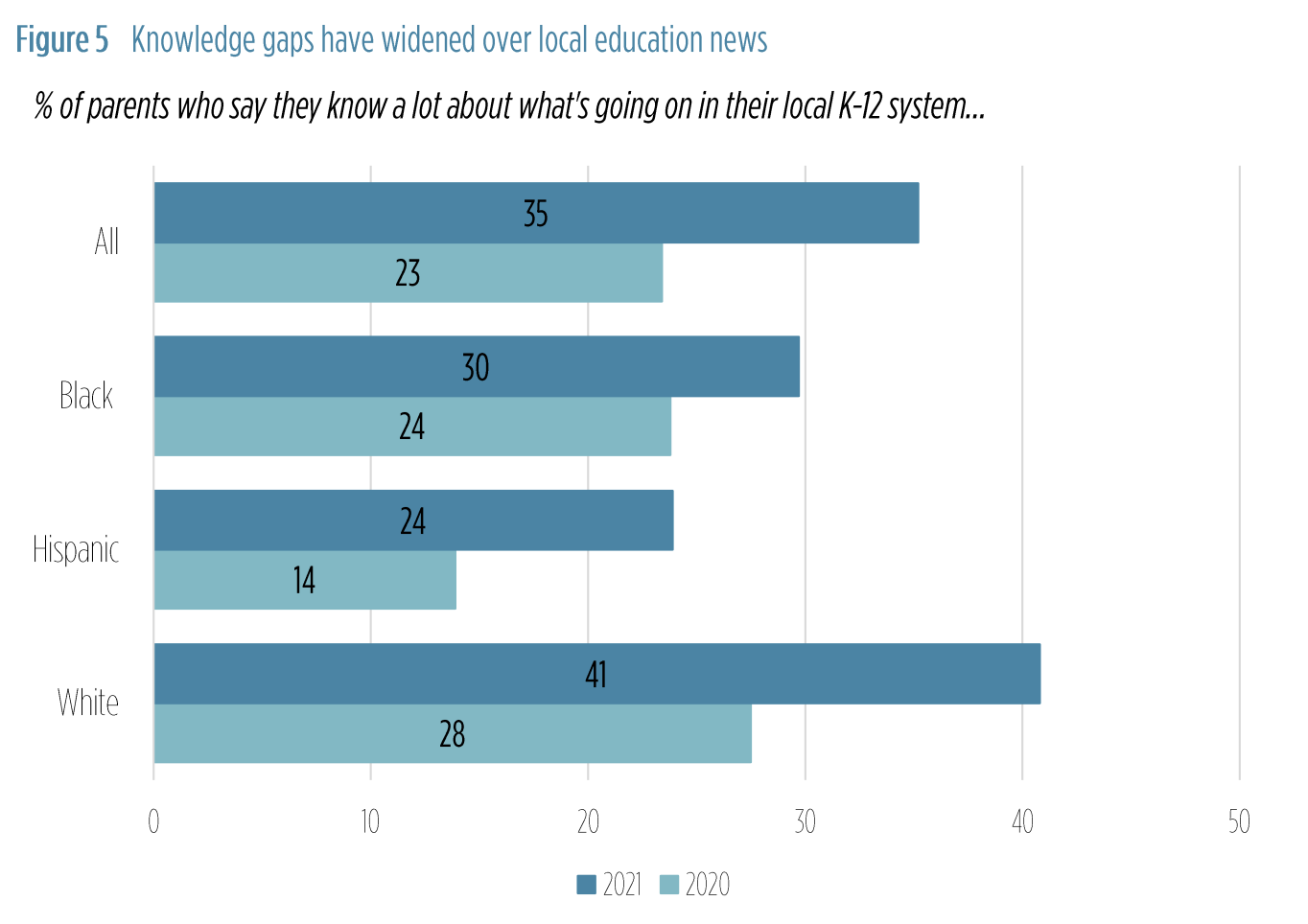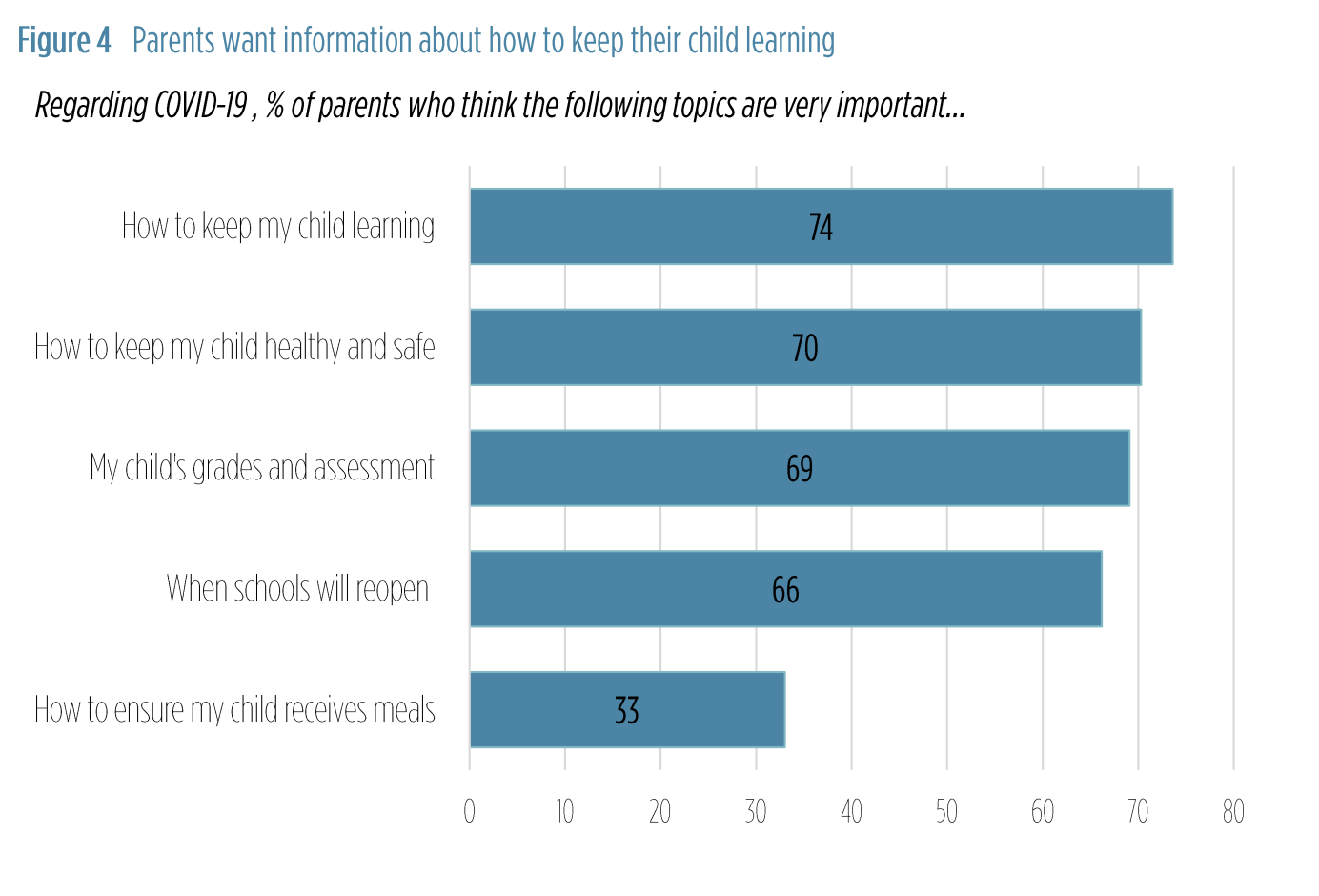
American parents identify information about education and schools — their local schools, in particular — as their top news need, and that need has only grown during the pandemic. Brand-new studies conducted in the spring of 2020 and August of 2021 show that interest in news about schools increased substantially over the period.
Parents of color, in particular, say that information about schools is a vital need. A report out Wednesday from Calvin University’s Center for Social Research notes that Black parents prioritize education news, yet still feel increasingly uninformed about what’s going on in their children’s schools.


Black parents were more likely than Hispanic or white parents to say they follow news on “many” school-related issues — but still, by 2021, they felt less informed on about what was going on in their local schools in 2021 than they did in 2020. “This finding is especially striking given that white parents are less likely than other groups to seek news and information about education and suggests that other factors may be at play,” the report’s authors note.
And a significant minority of parents surveyed — 33% — said that information about “how school systems will continue to provide for their children’s nutritional needs” was a top priority. This item became more important as the pandemic progressed. In 2020, just 26% of respondents ranked “How to ensure my child gets meals” as a top priority. By 2021, that figure was 33%.
“The racial and ethnic gap on this matter is striking,” the report’s authors note. “By 2021, twice as many Black parents (57%) and Hispanic parents (48%) as white parents (26%) identified [school meals] as a ‘very important’ education topic to follow.”

And while polarizing topics like masks in schools have often dominated national education coverage, the parents surveyed in the report didn’t consider them top priorities. Rather, they were most interested in information about “How to keep my child learning” during a pandemic (74%).
There is a lot going on in this study. So I spoke with Jesse Holcomb, its lead author and assistant professor of journalism and communication at Calvin University, about some of its findings. (Coauthors are Taylor Hartson, Kim Yejae, and Laura Luchies.)
Our conversation, lightly edited for length and clarity, is below.
But more broadly, Covid or no Covid, we’ve known for a long time that schools and education is a major critical information need that communities have. It’s [an area] where there are also inequities in information access across racial, ethnic, and socio-ethnic lines. With all of the future being paid to the importance of local news, the importance of schools in people’s lives, this seemed like a natural area to dig in really deep. With the overlay of the pandemic, the urgency of the research ratcheted up by orders of magnitude.
We asked a question that went something like: “Do you find news media sources to be the most useful in helping you with your education information needs, or do you find non-media sources to be most useful?” Maybe a little under half of all parents said, “Both of those sources are equally useful to me.”
But in the other half, there were a lot of parents who said “non-media sources” were most useful to them — that means networks, school officials, sources like that. And this was especially driven by white parents. There was a noticeable difference there by race and ethnicity.

It was intriguing to me, so I dug a bit deeper into the data and I think part of how we can explain that is that white parents seem to be able to leverage their informal networks with greater efficiency. These networks work better for white parents than they do for parents of color.
Our surveys show that, for one, Black and Hispanic parents are less likely to use or prefer email as a school communication source. You and I both know how much email is used [in schools]. Parents of color, especially Hispanic parents, are more likely to say that they’ve had bad experiences with school communication. Before the pandemic, they were less likely to feel comfortable going to in-person school events, more likely to feel that teachers are not responsive to diverse cultural backgrounds. There’s a host of issues that make these non-media or non-journalistic sources of information less useful for parents of color.
And so they’re left with professional news media. Local TV, and other sources like that.
The report bears this out. You wrote, “The survey data suggests that a variety of systemic factors may advantage white parents when it comes to the utility of informal and networked school-related information.”
Also, I have found a lot of local education coverage to be not very helpful or useful with the stuff I actually need or want to know about. Others have noticed something similar. If parents of color are stuck with less useful information, that’s troubling.But you’re doing a follow-up study that looks at local news coverage of education that will be out in a couple weeks, so we’ll leave that for now and maybe circle back later.
But okay, so! There was something really striking about this survey. It was troubling because it suggests kids might not be getting enough to eat. You found that parents really needed more information about meals in schools.
We asked open-ended questions to allow people to tell us a little bit more about what kinds of information would be useful. A lot of this came down to things like: Parents who essentially had been relying on their school systems to help provide for their children’s nutritional needs now, through a large portion of the last couple years, now had to try to figure out some of that stuff on their own.
We got responses like, “I need to figure out how to get my child’s school to get meals to my kid.”
It speaks to the larger role that school systems play in things that are not just about learning. What we’re seeing in that data is parents who are looking for information about how to meet a whole host of needs for their families. Those needs, yes, include learning and, yes, include Covid safety, but they also include things like physical and mental health for their kids. Schools have social workers. Schools have a whole host of support systems that became more fragile during Covid.
And parents flagged “How to keep my child healthy and safe” as a top informational need. Tell me what you saw there.
There were other things that came up too, especially in the first survey we fielded back in 2020. Bullying was a pretty common theme when it came to school safety, in general. Prior to Covid, you would have thought about safety in terms of things like gun violence in schools and school shootings.
My response to this is a little bit speculative, but what I’ll say is that there are very high stakes in the American public educational system. Children’s futures are really determined in these institutions, in many ways, and deep structural institutional racism means that, unfortunately, parents of color, Black and Hispanic parents, as we see in this study, are paying especially close attention to how they navigate these systems, which can be stacked against them, and [which are] confusing to navigate for any parent.
I will say personally, as a white parent of privilege: The seas kind of part. It’s easier for me to just walk into the superintendent’s office or the principal’s office and get the attention and answers that I feel that I need. I think this study is a reflection that that’s not everybody’s experience.
I’m not saying that the politics has not further invaded this space, even since [the time of the second survey]. It may have. But even looking at recent political polling in the midterms — and CNN had a poll out just this week about parents’ voting priorities related to education — it’s a mix. It’s complex, it’s diverse, it’s not just school politics by any stretch. [School politics] are not what’s [top] on parents’ minds. It’s something of a secondary concern for the majority of parents.
It would also be nice to be able to actually get into the politics of school information even further. I may be able to do this with the data set that I have — explore responses by partisanship. I would like to know more about the impact of parent gender identity on information-seeking habits. These are all things that we intend to explore. I would love to be able to understand more about the experiences of parents who don’t identify as Black or white or Latino or Hispanic but who are from, say, Asian-American backgrounds. Survey research makes it very difficult to have a robust enough sample to really understand the experiences of these groups.
Read the full report here.